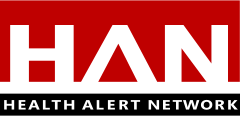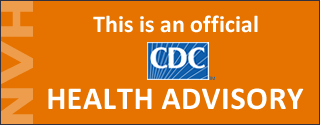Voluntary Recall of All Ameridose Medical Products
Distributed via the CDC Health Alert Network
November 1, 2012, 16:15 ET (4:15 PM ET)
CDCHAN-00332-2012-01-11-ADV-N
Summary
On October 31, 2012, the Food and Drug Administration (FDA) announced that Ameridose is voluntarily recalling all of its unexpired medical products in circulation. Ameridose is based in Westborough, Mass., and is managed by some of the same people as the New England Compounding Center (NECC), the firm that distributed and recalled injectable medications implicated in the ongoing multistate outbreak of fungal meningitis and other infections. FDA is not aware of any recent reports of infections associated with the recalled Ameridose products. However, the preliminary results of FDA’s ongoing inspection of Ameridose have raised concerns about a lack of sterility assurance for products produced at and distributed by this facility. As a result of FDA’s preliminary findings, Ameridose has agreed to voluntarily recall all of its unexpired products in circulation.
Background
The recall of Ameridose products is different from the recent recalls of NECC products. The Centers for Disease Control and Prevention (CDC) and FDA are not aware of any recent reports of any infections associated with Ameridose products, unlike the three lots of preservative-free methylprednisolone acetate (80mg/ml) from NECC1 that were recalled on September 26 and directly linked to cases of fungal meningitis and joint infections. Therefore, at this time, FDA does not urge healthcare professionals to follow-up directly with patients who received Ameridose products.
Drug Shortage Considerations
FDA has identified some Ameridose products that currently are on the critical drug shortage list. These products were in shortage before the Ameridose recall, but supplies may be further affected as a result of the Ameridose recall. FDA is taking a number of actions, including working with alternative manufacturers to maintain supplies of these life-saving drugs.
Clinicians should refer to the FDA’s Drug Shortage website for information on availability of drugs currently in shortage. If clinicians believe there is a drug entering shortage, notify FDA’s Drug Shortage Team at drugshortages@fda.hhs.gov.
Recommendations to Healthcare Providers
CDC and FDA are advising health care professionals to stop using and isolate for return to Ameridose all Ameridose products. Hospitals, clinics, health care professionals, and other customers with product on hand should contact Ameridose at 1-888-820-0622 to obtain instructions on how to return products to Ameridose. Products from Ameridose can be identified by markings that indicate Ameridose by name or by its company logo. A complete list of all products subject to this recall can be accessed online at www.ameridose.com.
At this time CDC and FDA do not urge direct patient follow-up for Ameridose products. However, clinicians should remain vigilant to the possibility of infections associated with the use of Ameridose products, and report to FDA’s MedWatch any infection or adverse events identified in a patient known to have received a product from Ameridose. Contact FDA’s MedWatch Program by fax at 1-800-FDA-0178 (or 1-800-332-0178); by mail at MedWatch, FDA, 5600 Fishers Lane, Rockville, MD 20852-9787; or on the MedWatch website at www.fda.gov/medwatch.
1. NECC lots of methylprednisolone acetate (PF) 80mg/ml:
- Methylprednisolone Acetate (PF) 80 mg/ml Injection, Lot #05212012@68, BUD 11/17/2012
- Methylprednisolone Acetate (PF) 80 mg/ml Injection, Lot #06292012@26, BUD 12/26/2012
- Methylprednisolone Acetate (PF) 80 mg/ml Injection, Lot #08102012@51, BUD 2/6/2013
The Centers for Disease Control and Prevention (CDC) protects people’s health and safety by preventing and controlling diseases and injuries; enhances health decisions by providing credible information on critical health issues; and promotes healthy living through strong partnerships with local, national and international organizations.
Department of Health and Human Services
HAN Message Types
- Health Alert: Conveys the highest level of importance about a public health incident.
- Health Advisory: Provides important information about a public health incident.
- Health Update: Provides updated information about a public health incident.
###
This message was distributed to state and local health officers, state and local epidemiologists, state and local laboratory directors, public information officers, HAN coordinators, and clinician organizations.
###

